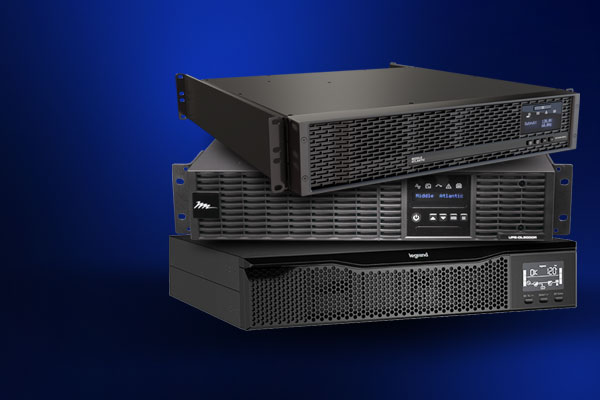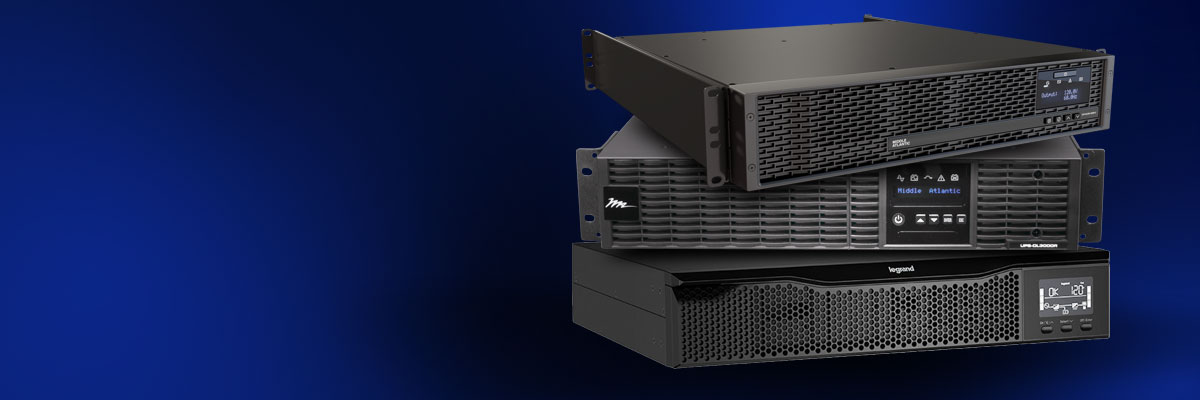Plan For The Expected – Top 3 Reasons To Use a UPS
Power anomalies and blackouts eventually strike us all, and always at a moment when it really matters. You can never know when you are going to lose power, but you can expect it will happen. Planning for the expected using an Uninterruptible Power Supply (UPS) can save you time and money. The UPS is a power backup system designed to provide emergency power to the devices attached in the event of power surges, voltage drops, or a full loss of electricity. The UPS works as a bridge providing power to the load until the power returns, the generator comes on, or you safely shut down your devices. Originally this device was widely seen in large scale data centers and mission critical applications, but now thanks to advances in technology, these incredibly underutilized battery backup systems can be used to protect sensitive AV and IT equipment. There are 3 reasons a UPS should be a core component of your AV or IT system.#1 – To provide clean, consistent power to your devices
The first reason a UPS should be a core component of your system actually has nothing to do with blackouts at all. The UPS is your first line of defense against power anomalies that are very damaging to sensitive, expensive equipment. The power coming directly from your wall is not always “clean”. There can frequently be periods of time where your devices are receiving under or over the amount of voltage needed to run properly. Both under and over voltage put stress on your devices and shorten their lifespan. When you have your load plugged into a UPS, should the voltage ever leave a safe range (typically around 105 to 130 volts) the UPS will take over and provide clean power to your devices until the power returns to normal.
So when and why does over and under voltage occur? It can be from inconsistent power from your utility provider, especially in the summer months. More often though the voltage irregularities are being caused by your own building. When devices that require an enormous amount of power, such as an HVAC system, industrial vacuums, etc. are in use, their draw depletes the power available leaving your sensitive equipment at a power deficit. Since your building can’t operate without such systems requiring enormous amount of power, and your sensitive devices can’t consistently be receiving under or over voltage without shortening their lifespan, a UPS is the solution.
#2 – To provide power to essential equipment to get you through a short-term power loss
A power loss, no matter how brief, can shut down your system and delay you for minutes as it reboots. Even if you have a backup generator, the time for it to kick start is typically multiple minutes. The switch to battery backup power when using a UPS is milli-seconds (or instantaneous depending on the type you choose). There will be no down time for any of your important systems, and in many applications this is key. For example:
- A conference room used by your CEO for fully virtual or hybrid meetings.
- A lecture hall where the professor has only 50 minutes to teach their students valuable material.
- A broadcast control room where teams of people are working to produce live content.
- A live event where any power fluctuation can cause a rack of audio equipment to shut down.
- And more!
Power losses are completely unpredictable and usually not thought about until it is already happening. A UPS carries you through these temporary power losses, saving you face and time.
#3 – To provide enough power for a seamless shut down in the event of a full power loss
When sensitive equipment is suddenly cut off from power and does not get the opportunity to shut down properly, it can cause irreparable damage. The data stored on your devices can be corrupted or completely lost when faced with a sudden power loss. Today’s expensive smart technologies, such as cameras, laser projectors, digital signal processors, control systems, etc., are particularly at risk of corruption when not powered down properly. A UPS will provide you with enough time to complete a proper shut down, saving your equipment and saving you money in the long run.
Our lives run on power, but we can never predict when power is going to fail us, only that it inevitably will. A UPS is key to ensuring your devices are never damaged by power anomalies and they never have to suffer any down time. Plan for the expected by including a UPS in your AV or IT system.
If you are ready to take control of your power and add a UPS to your system, check out our NEXSYS home page for all the resources on power you could need, including our whitepaper on the 5 Steps to Selecting a UPS.


